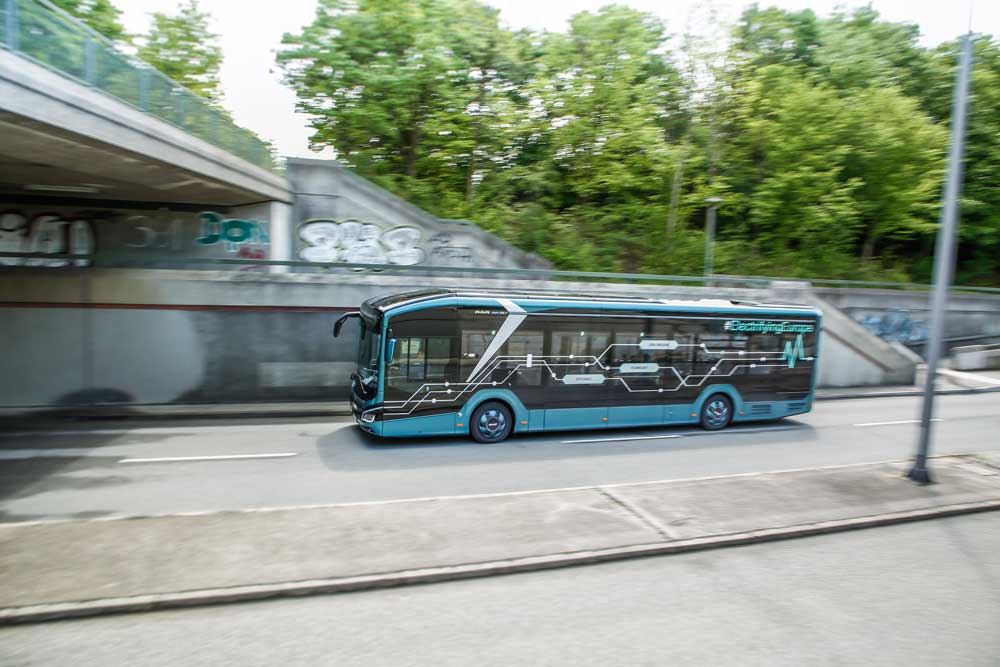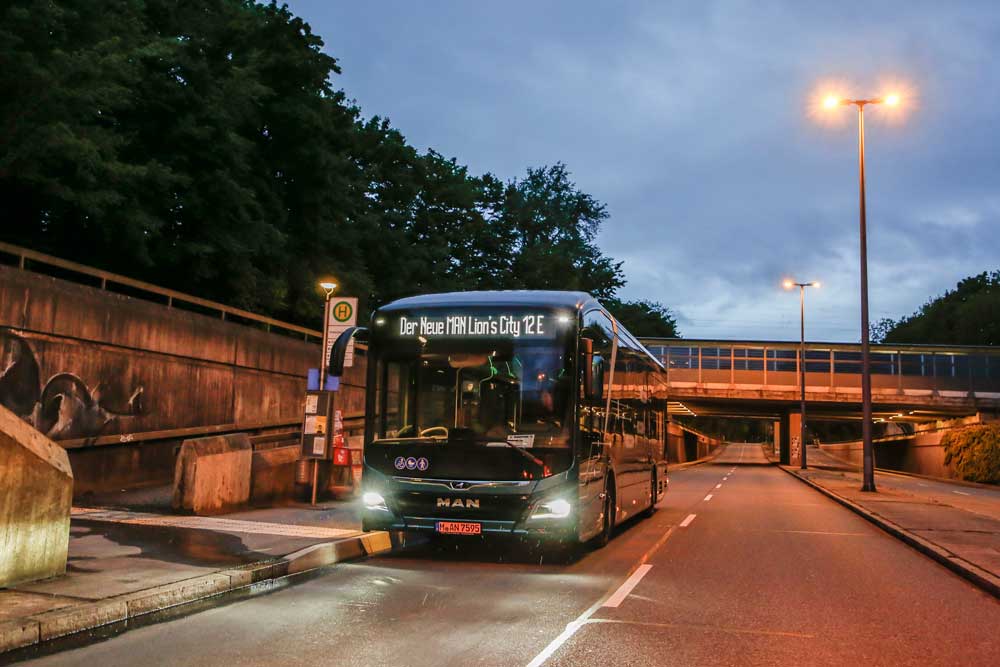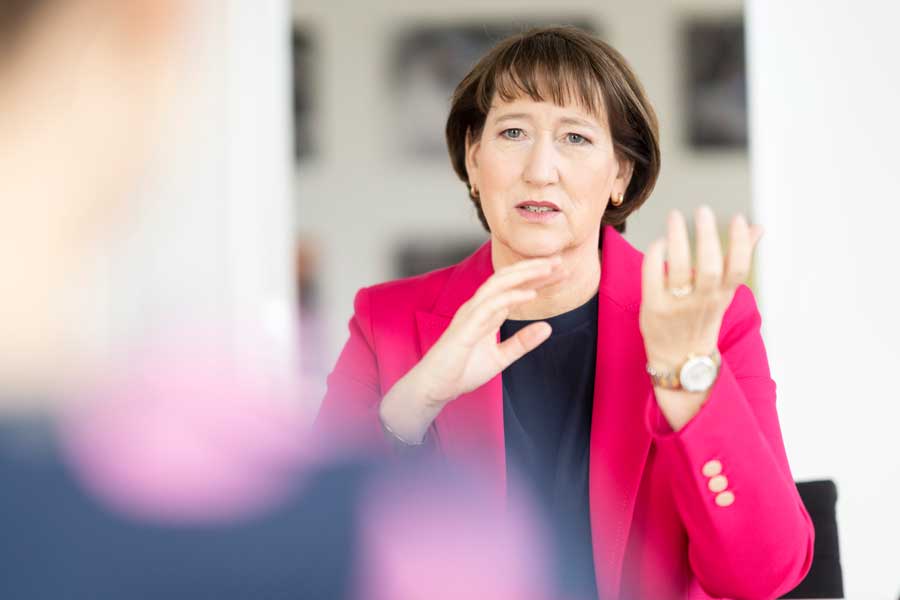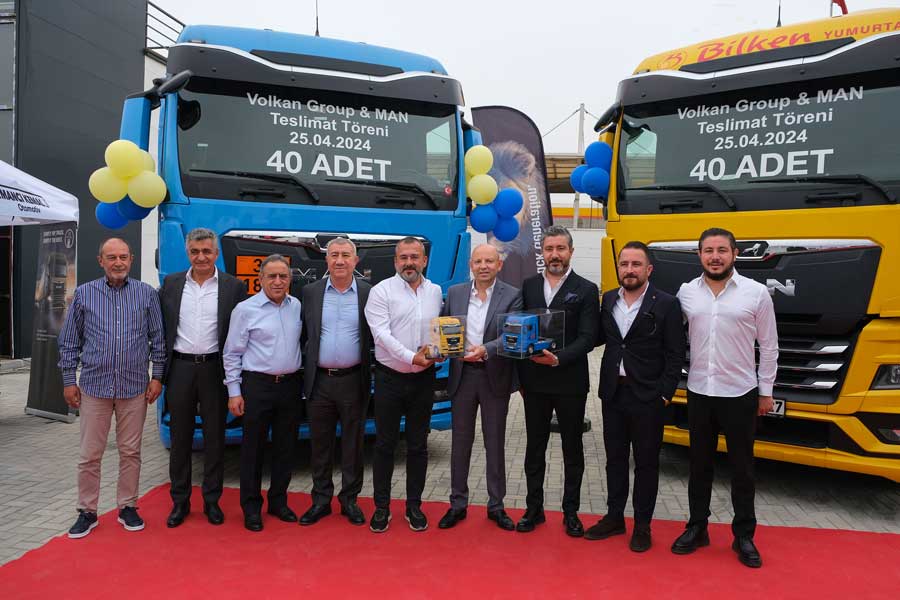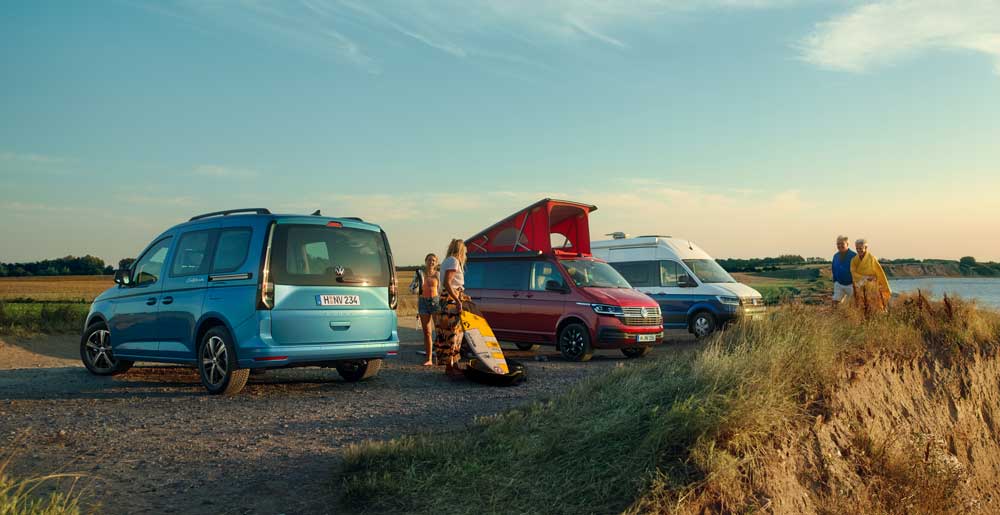24 hours in service, no intermediate charging, 550.8 kilometre range – this is the impressive result of a MAN e-bus trial that was carried out on 18 May in Munich under real-world conditions. The MAN Lion’s City E impressively demonstrated that e-mobility is now capable of day-to-day operation – and is a genuine alternative for local public transport.
“It’s really incredible what the drivers and vehicle managed to do. The MAN Lion’s City E drove 550 kilometres on a local public transport route under realistic conditions – all on a single battery charge. We’re absolutely delighted with this great result. Finally, we have clearly demonstrated that e-mobility is now suitable for everyday use”, said Rudi Kuchta, Head of Business Unit Bus at MAN Truck & Bus. Along with his team, he sent out a MAN Lion’s City 12 E for the “MAN eBus Efficiency Run” on the Munich transport authority (MVG) lines 176 and X80. The fully electric city bus ran for exactly 24 hours on the routes between Karlsfelder Straße, Moosacher and Puchheimer station, with drivers from MAN ProfiDrive behind the wheel. The MAN eBus Efficiency Run was also accompanied by a journalist and experts from official testing body TÜV SÜD, who sealed the charging socket on the bus before setting off, removed the seal at the end of the day and testified to the range driven.
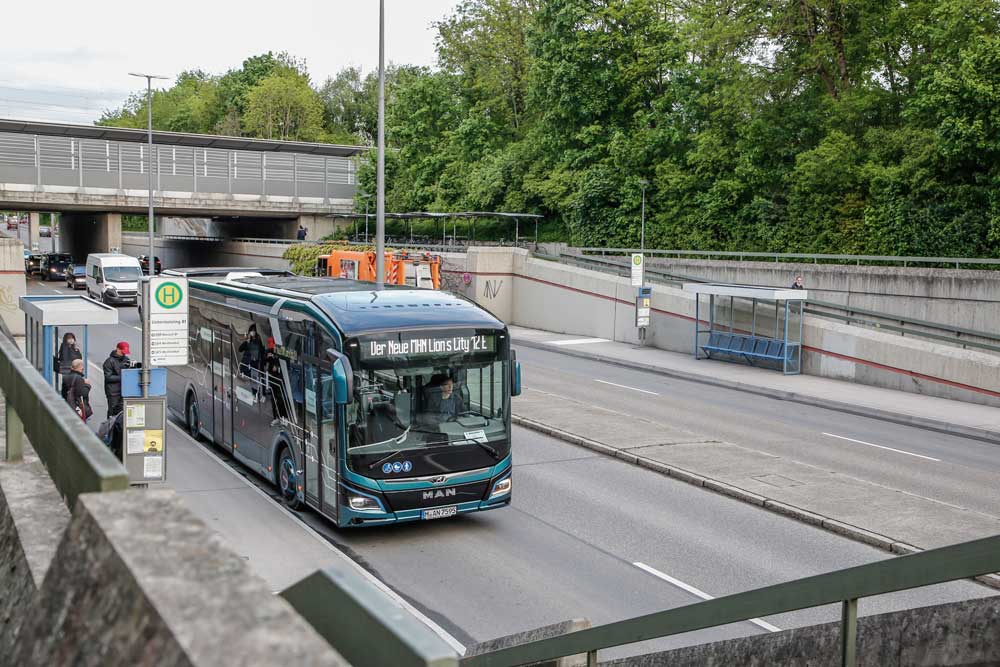
“Our aim was to demonstrate that you can achieve a very high range with our Lion’s City E under genuine everyday conditions. And after driving a total distance of 550 kilometres, we can say we definitely achieved it”, said Kuchta. He added: “As well as availability and reliability, the issue of range is a crucial factor for our customers. Ultimately, in the future a single electric vehicle needs to be able to take over lines that were previously operated using a single vehicle with an internal combustion engine, fitting seamlessly into the overall operation. With a range of 550 kilometres, this is possible without intermediate charging in 99 percent of cases. This means that customers can charge their buses in the depot and do not have to invest in additional technology along the route – a crucial advantage.” Even ranges of “only” 400 kilometres or 300 kilometres would cover 98 and 89 percent respectively of routes operated by MAN customers. This is shown by an analysis of 1,325 routes carried out by experts from MAN Transport Solutions as part of their e-mobility consultancy for companies operating local public transport. Back in 2018, MAN Transport Solutions division began to offer know-how and services to make it as easy as possible for customers to get started with e-mobility.
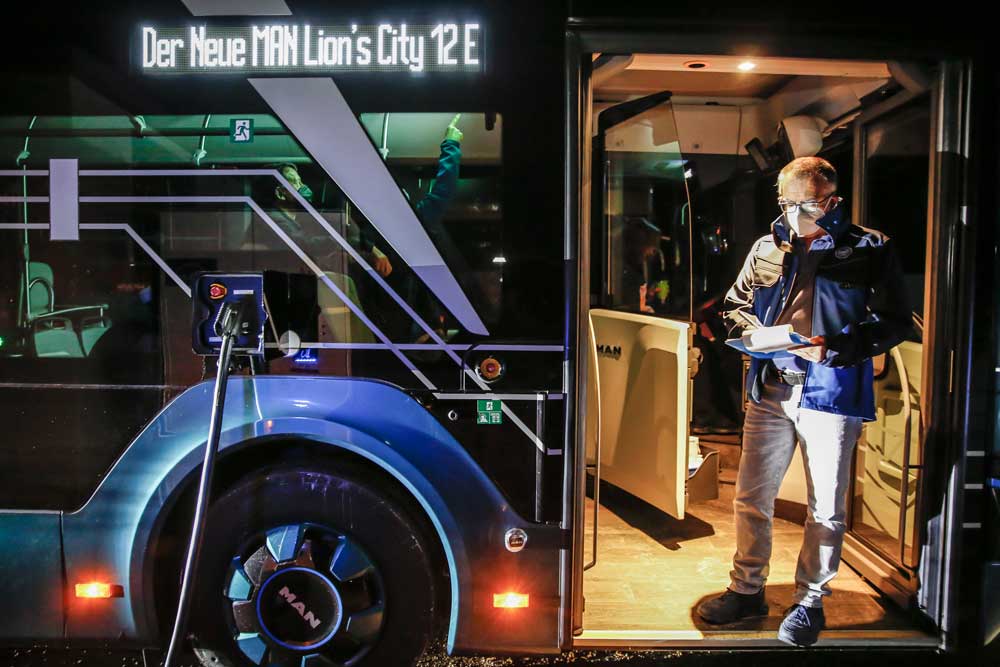
Test run conducted under genuine everyday conditions
The MAN eBus Efficiency Run team paid particular attention to testing the electric bus under conditions that were as realistic as possible. As a result, the MAN Lion’s City E ran on an actual route, stopped at every bus stop, opened its doors and closed them again. In addition, weights were used to simulate average utilisation by passengers. “We drove partially loaded in spring-like temperatures on a relatively flat urban/inter-urban route – of course these were favourable practical conditions”, said Heinz Kiess, Head of Product Marketing Bus. He added: “Nevertheless, a range of 550 kilometres is a more than convincing result and reflects the positive experience of many of our customers who are already using or have tested the MAN Lion’s City E.”
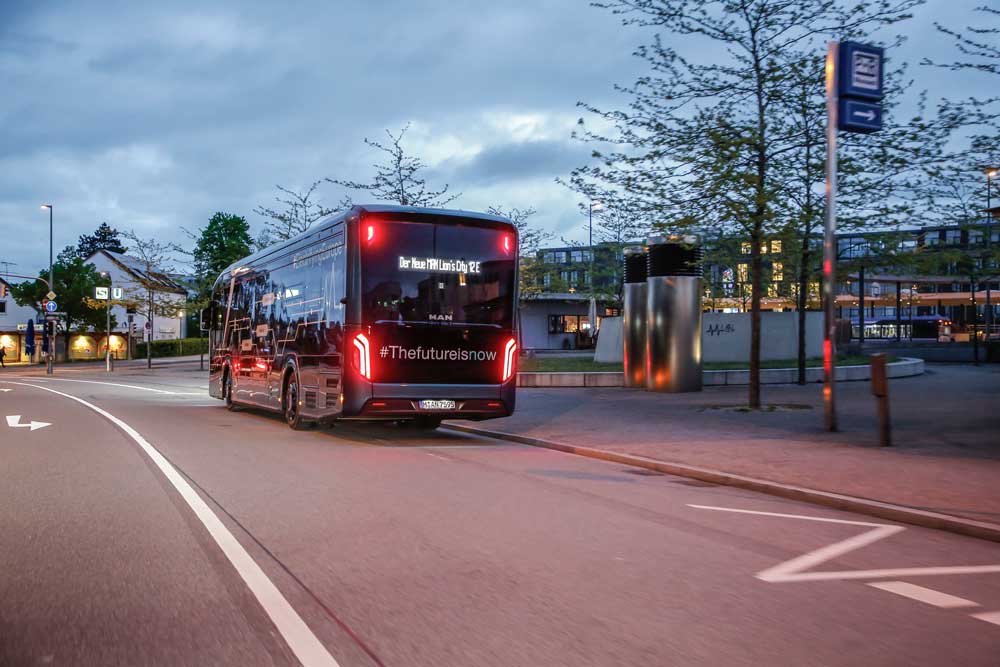
For example, the 12-metre long electric bus impressively completed trial operation at Badajoz in Spain last year. In challenging temperatures of over 35 degrees, the Lion’s City E completed a full 16-hour shift and covered a local public transport operator’s entire route; a total distance of 284 kilometres. “At the end of the day, the bus still had a decent amount of charge. This shows that our e-bus can even be used on routes where operation of electric vehicles would have been unthinkable in the past”, says Manuel Fraile, Head of Sales Bus at MAN Truck & Bus Iberia.
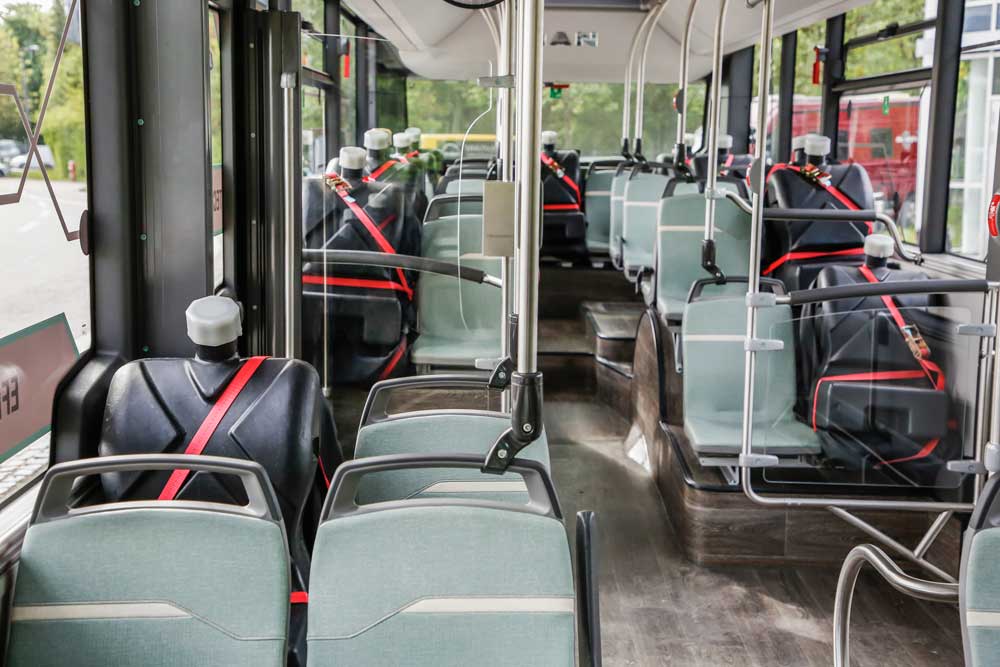
Sophisticated battery cell technology delivers high range
The success is partly due to the sophisticated battery cell technology developed by the Volkswagen Group, which MAN is able to use for the e-bus. In addition, sophisticated temperature management ensures an exceptionally high level of availability, regardless of the time of year. As a result, the Lion’s City E ensures that the range is up to 270 km over the entire service life of the batteries. “The MAN e-bus efficiency run impressively demonstrated that under optimum everyday conditions the range can be way above the 270 kilometre figure”, emphasised Heinz Kiess.
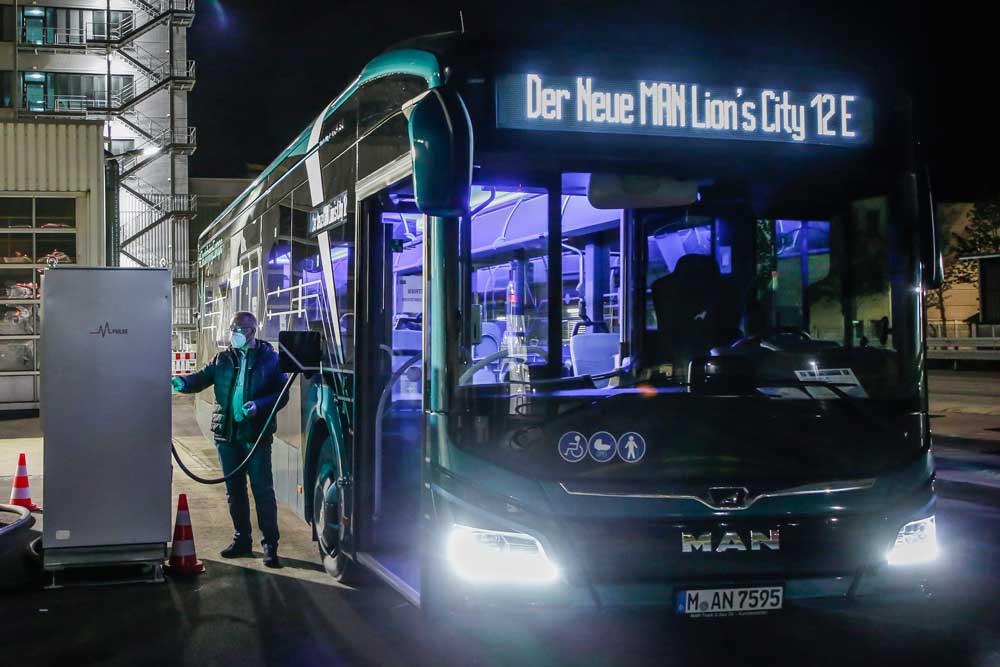
Alongside innovative technologies, efficient driving also plays a critical role when it comes to range. As a result, experienced drivers from MAN ProfiDrive were behind the wheel for the test run in Munich. “It is important not to underestimate the influence of the driver. That is why we are offering special driver training for our e-bus. The trainings focus on economical driving”, said Kiess.
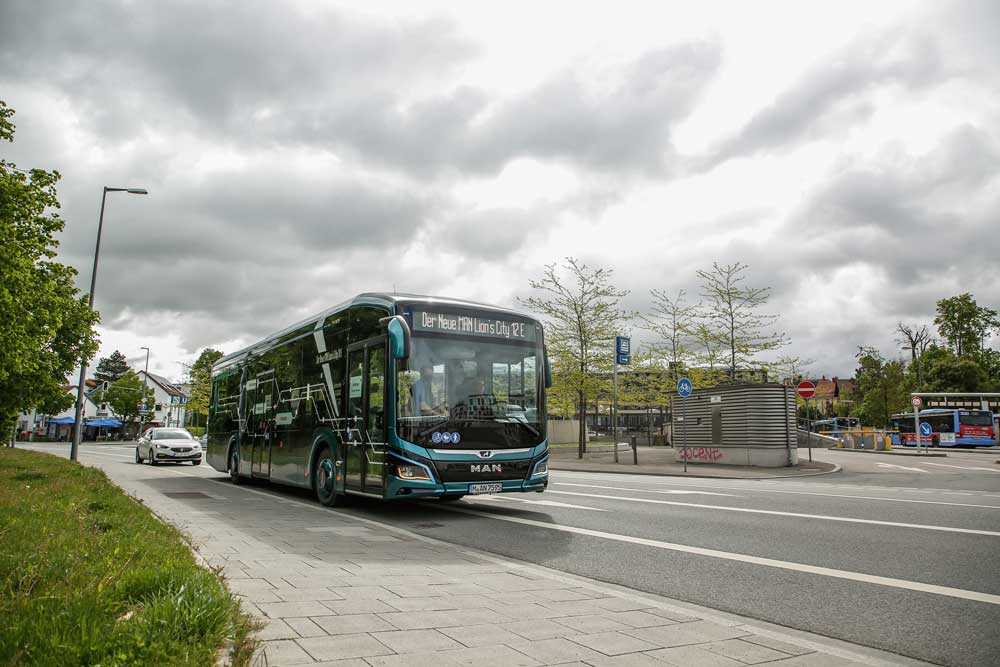
The future is electric! MAN supports transport companies with innovative vehicles and tailored services
Driver training is a core element of a comprehensive overall e-mobility concept. MAN Truck & Bus firmly believes that the future of urban mobility is electric. For this reason, the company is fully committed to battery powered electric vehicles and, with the MAN Lion’s City E, offers a standard solution for local public transport. Operators and customers also benefit from integrated e-mobility consultancy and forward-looking mobility solutions that focus on issues such as charging infrastructure, sustainability and digitalisation. The experts at MAN Transport Solutions analyse customer-specific route profiles and calculate what effect topography, the number of stops or local climatic conditions have on the range.
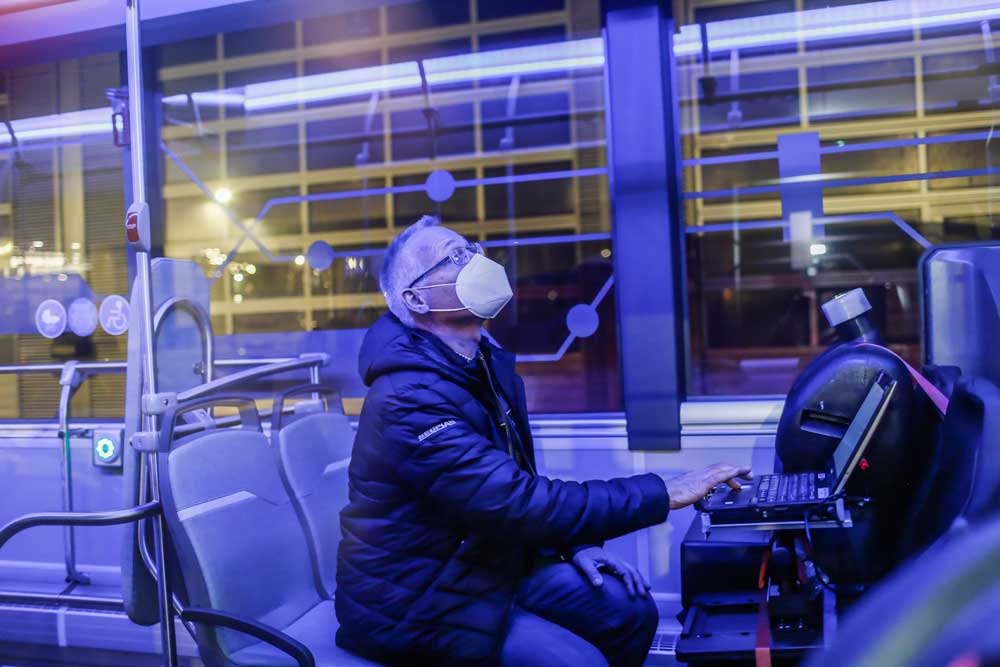
With innovative e-buses suitable for everyday use and tailored services, MAN wants to provide the best possible support for the commercial vehicle sector. The sector is hugely important when it comes to decarbonisation of transport and working towards making mobility neutral in terms of greenhouse gases. The way ahead is defined by the legal specifications for CO2 reduction. And since the European Union passed the “Clean Vehicle Directive”, cities have to put in place a framework for emission-free mobility. The aim is to move from “low emission” to “no emission”. “An increasing number of public transport companies have understood this and are only considering battery powered city buses when making new acquisitions. Or they are setting clear target dates for converting their entire fleet to emission-free drives”, says Kuchta.
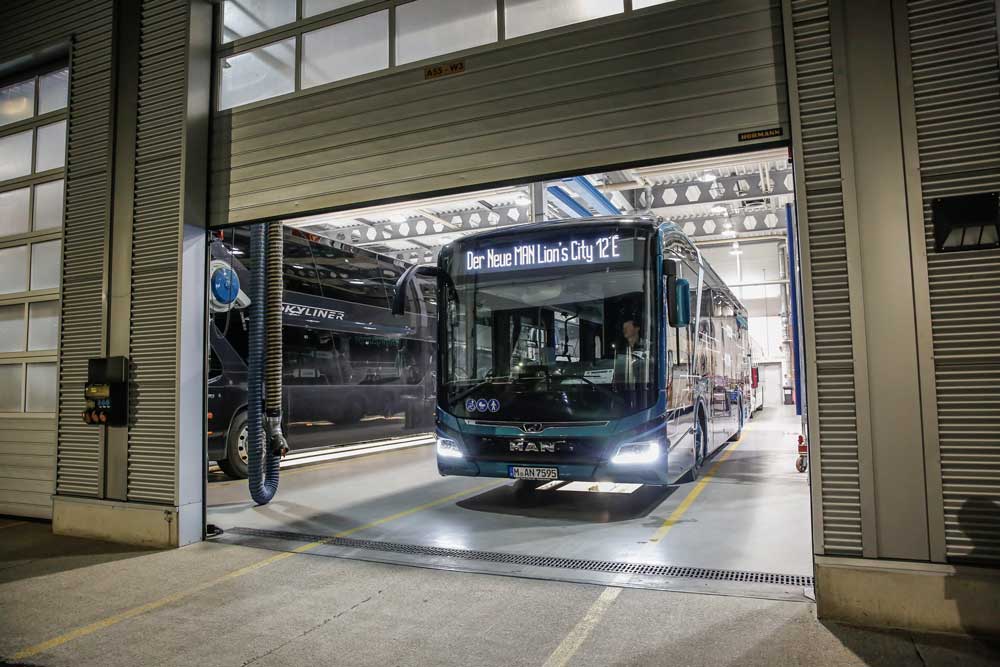
Clear trend towards e-mobility in urban transport
The trend towards e-mobility is especially apparent in urban areas. In 2020, the total European market for electric buses was more than 2,000 vehicles – with an upwards trend. MAN Truck & Bus expects that by 2025 half of all new MAN city buses will run on alternative drive technologies. “This is an initial active and valuable contribution to meeting our climate targets under the Paris Agreement”, Kuchta said. To meet the increasing demand for the Lion’s City E, MAN is continuing to ramp up its production. In the coming years, the company will be able to produce up to 2,500 vehicles per year at its plant in Poland. If demand continues to rise after 2026, production capacity can be increased further.
